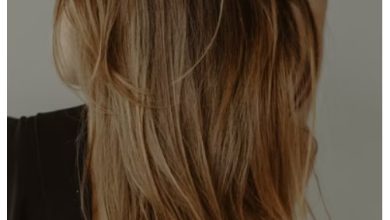What to Know About Baldness in Women

Many women believe that baldness is only a problem for men. We’re used to seeing balding men, but balding women seem far more uncommon.
While baldness in women isn’t as common as baldness in men, it’s still not an uncommon occurrence. For many women, baldness can come with serious self-esteem issues, anxiety, and even depression.
Female hair loss can be natural, but there are also several potential causes that you can look for if you’re experiencing heavy loss of hair. Read on to learn more.
What’s Normal?
If you see a few stray hairs in the shower or on your brush, don’t panic. The average person loses between 50 and 100 strands of hair per day. If you go a few days between washes, all of those loose hairs might appear at once.
It looks like a lot, but in reality, that’s normal and healthy hair loss.
If you notice far more than that, you should pay more attention to see if it becomes a pattern. Hair loss is sometimes the result of a more serious problem.
Most of the time, problematic hair loss is noticeable from sight alone. You may notice that you’re seeing more of your scalp or that your hairline is much higher than it was before.
Potential Hair Loss Causes
So what causes female hair loss?
The first common cause is hormone changes. Hormones have a huge impact on the body, so even minor changes can cause hair loss and other symptoms. Many people experience hair loss during pregnancy, after switching birth control methods, or when they’re experiencing hormonal shifts during menopause.
While most people attribute female hormone changes to estrogen, testosterone can also be a problem. Read more about signs that your problem is testosterone-related.
It’s not uncommon to start losing hair after starting a new medication or experiencing stress. This kind of hair loss is telogen effluvium. It’s typically temporary.
If you wear tight hairstyles, you may develop a hair loss type called traction alopecia. This means that your hairstyle pulls too hard on your scalp, causing it to fall out.
Hair Loss Treatment Options
If your problem is hormonal, you may need to seek hormone therapy to fix your hair loss. If you’ve just given birth, or you’re pregnant, the hair loss will likely subside on its own. You may need to try different birth control methods until you find the right hormone balance for you.
If the problem is telogen effluvium, it may stop on its own. Stress-related telogen effluvium will stop when you’re able to relax, and medication-related telogen effluvium will stop if you cease taking the medication (though it may take some time).
To recover from traction alopecia, start letting your hair sit in natural styles. Leave it down or in loose braids and ponytails so it doesn’t pull on your scalp.
Baldness in Women: You’re Not Alone
Baldness in women isn’t as uncommon as you think. Many women are experiencing the same thing that you are. For most women experiencing hair loss, there are options.
If you’re concerned about hair loss, talk to your doctor about potential treatments.
For more articles all about health and more, visit the rest of our site.




